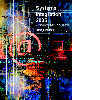 Nature of the
workshop
Nature of the
workshop Nature of the
workshop
Nature of the
workshop
This workshop was the third in a series of related workshops supported by DTI and EPSRC. The previous workshops had been on the subjects of "Future Issues in Design Research" and "Responsive Production and Planning", both held in spring 1999.
The workshop on "Future Issues in Design Research" had recommended actions in the areas of:
The key messages arising from the workshop on "Responsive Production & Planning" were:
It had been noted that these previous workshops had attracted representation from different communities, reflecting a traditional distinction between design and manufacture. In much of the discussion about modern manufacturing, this distinction is being blurred if not removed entirely. The present workshop was, to some extent, intended to bridge the two domains and their associated communities.
This workshop is also closely associated with the EPSRC-supported research programme in Systems Integration.
The scope of this programme includes the integration of complex products, manufacturing systems, and information systems. Moreover since the launch of the programme in 1997, it has been become increasingly clear that the emphasis has shifted from the integration of manufacturing and information systems to the integration of businesses, processes, and organisations. It is in the context of these latter forms of integration that integration of technical systems must be viewed. This is not to deny the many challenges remaining for technical integration - especially those of complex systems, including information systems and their associated software.
The aim of the present workshop was to develop short, medium and long-term recommendations for action by industry, academe, DTI and EPSRC.
Format
The workshop was held over the two days of February 14th and 15th, 2000, at the Swan Hotel, Bedford with participants from industry, academe and government.
The approach taken was first to establish a common view of present problems and uncertainties ('Present concerns').
Three 'breakout' groups then explored visions for the manufacturing environment in 2005, from the different perspectives of manufacture of:
These are presented in 'Vision 2005'
Finally, in a plenary session, the group considered the factors preventing the achievement of these visions today, leading to recommendations for action. These recommendations are intended to inform the strategies of DTI, EPSRC, industry - customers, suppliers, and tool vendors - and academic researchers.
The whole was stimulated and informed by personal experiences and presentations from keynote speakers. The aim was to get participants to think 'out of the box'. Two speakers presented theoretical developments which have practical application and far-reaching implications. Professor George Rzevski described his work on the role of networks, and particularly networks of autonomous agents, in manufacturing ("The Supply mesh") Professor Peter Allen presented latest results on modelling complex dynamic systems ("Complex dynamic systems"). From industry, Peter Thorne gave an overview of general impact of IT in manufacturing ("Changing gear - and mindsets"), while Steve Kneebone described the capabilities of a new class of information system tools which support process management ("Knowledge-based process modelling").